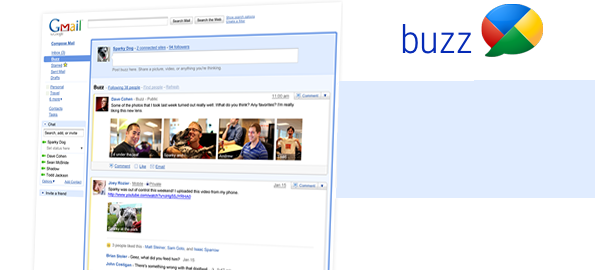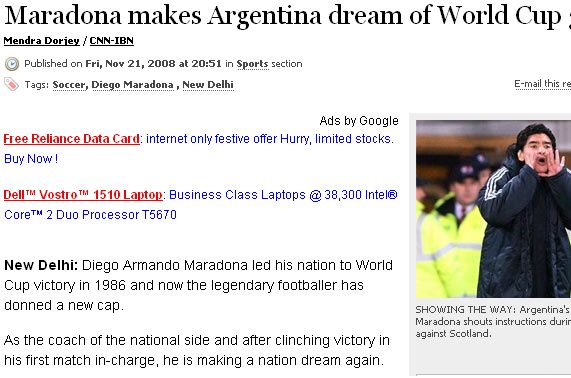Have you noticed how some sites have Google Adsense which does not even give the least hint that it is an advertisement? They do not have underlines, no borders, no sizes and not even a clear mentioning that they are ads by Google.
Check out the advertisement below from CNN ibnlive website:
Are you able to find where Google Adsense is? You would not even realize that you had clicked on the ad unless you find yourself browsing a different website. These ads seem to violate almost all guidelines and rules set by Google. One might wonder if it was ever from Google.
What does Google Adsense Guidelines State:
This site is encouraging users to click on the ads.
The ad code on this site is modified.
This site is promoted through unsolicited mass emails.
This site places misleading images alongside individual ads.
It’s difficult to distinguish the ads from the content on this site.
I saw inappropriate or mistargeted ads on this site.
These ads violate 4 out of 6 guidelines set by Google.
Isn’t that cool for publishers? Wouldn’t your CTR increase from a 2% or 4% to as high as 20% – 30% if you could ever get these ads on your website? Where do you get these ads?
Well readers, it’s not for most of us. Not even 1% of those who read this article would get those kinds of ads from Google. You got to be content with those dull boring Adsense boxes that Google provides. Who then gets these ads?
These ads are for websites which have more than 20 million page views. Not for us folks! Only large websites have special permission by Google to violate its guidelines. Which websites fall under this category? CNN, AOL, etc. These big guys negotiate with Google on a monthly pay out from Google and in turn place the ads however they want.
So does that mean a large website can fool a visitor into clicking advertisements and not a small website? Why are there unfair rules by Google according to “Who brings more money for Google?” Hope Google’s monopoly and injustice in search and advertising is brought to an end soon.

















Amazing, simply amazing. I cant even imagine how much these big websites are pulling in with adsense earnings. All the while us little guys are struggling to make $1 a day. Thats why the rich get richer. Simple double standard, but its all mighty “G” what you going to do about it? … nothing
I know some websites where the ads has no underline, but in your examples, the Google ads are still easy to see. They still have underlines and still labeled as “Ads by Google”
Now, the Google ad near the top of this page:
http://dune.wikia.com/wiki/Special:Search?search=sand+plankton&go=1
has no underline. I didn’t know how and why they did that. The other Google Ads in that website has underlined links.
This is pathetic for general publishers. Generating 20 million pageviews/month is not a joke.
Ya, It’s really true Sam. I seen lots of time, but now only i know the story..
And also the Google is rumoured to be in talks to buy the world’s largest micro-blogging site Twitter.com. It’s true..